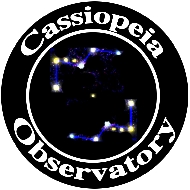Weather Updates, Cassiopeia Star Clusters
Posted: 1 October 2021
Friday, 24 September 2021, was cloudy. That was unfortunate as it was the last opportunity for my visiting niece Linda to view the night sky from a dark site before she left Arizona. Early Saturday morning, 25 September, there was a brief thundershower (0.12" rain).

Saturday night another thunderstorm came through (0.61" rain).

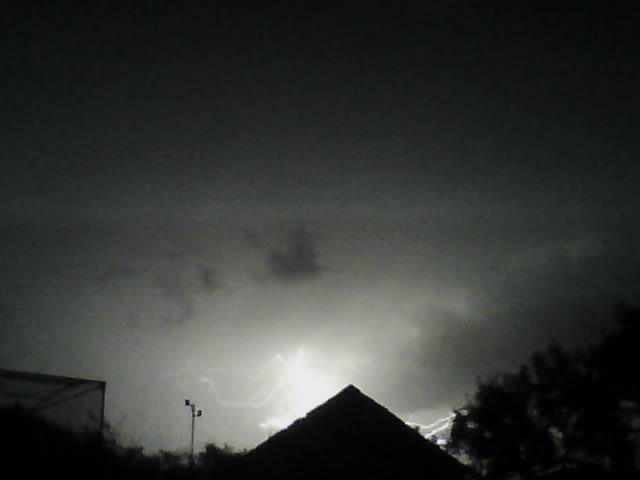
Sunday, 26 September, was cloudy with some rain (0.17"). Monday, 27 September, was also cloudy with some rain (0.14"). Tuesday morning had more rain (0.1") and the sky became partly cloudy. Wednesday, 29 September, was overcast. Early Thursday morning, 30 September, the last day of the 2021 Monsoon Season, there was a thunderstorm with a major lightning show that lasted for over an hour and brief period of heavy rain (0.2"). My webcams captured some of the lightning.


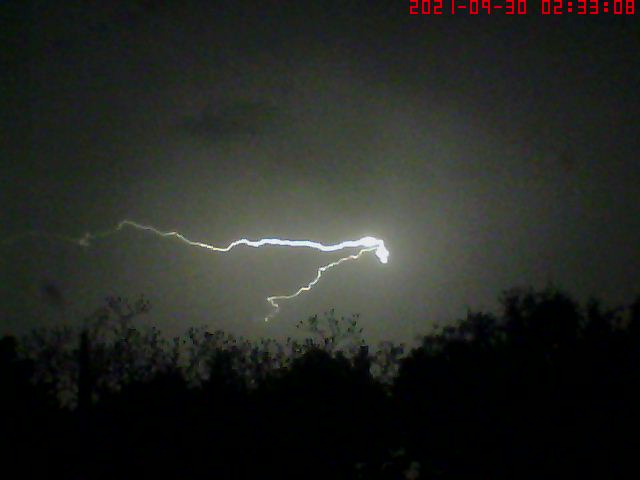

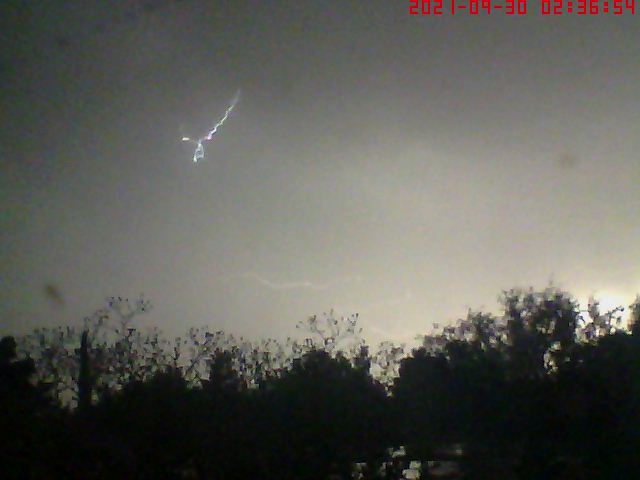





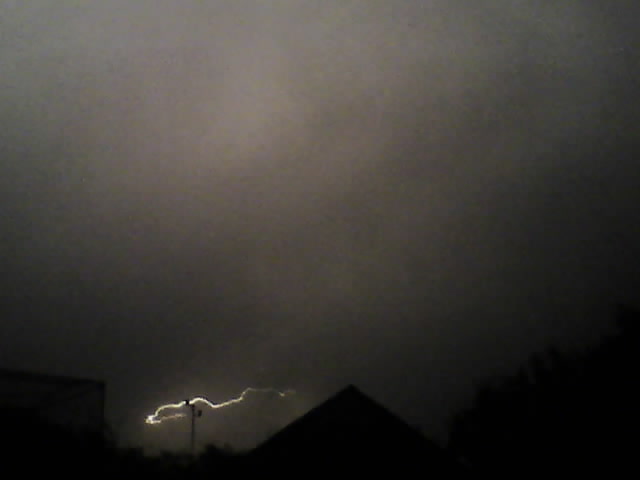
The sky became mostly clear as sunset approached, so I went out to the observatory.
|
Open: Thursday, 30 September 2021, 1814 MST Temperature: 75°F |
Session: 1672 Conditions: Mostly clear |
Equipment:
12" f/8 LX600 w/StarLock
2" 24mm UWA eyepiece
Camera:
None
1817 MST: Dome Cover OFF.
1825 MST: LX600 ON, StarLock OFF, High Precision OFF.
Tried to view Mercury, but the planet was too low. Viewed Venus, 102X. A half-phase was visible.
1835 MST: viewed Saturn and three moons, 102X. Viewed Jupiter and three moons, 102X.
1842 MST: relaxed on the observatory patio bench while waiting for the sky to get darker.
1905 MST: lightning flashes from distant thunderstorms were visible.
1910 MST: back inside the observatory.
Using the Sky and Telescope article "Cassiopeia Cornucopia — Pretty Little Clusters All In A Row" I observed these star clusters, 102X: Berkeley 58, NGC7790, NGC7788, Frolov 1, Harvard 21, and King 12.
1935 MST: clouds were increasing. Distant lightning was frequently lighting up the sky. I decided to end the session.
1940 MST: LX600 OFF.
|
Close: Thursday, 30 September 2021, 1949 MST Temperature: 64°F |
Session Length: 1h 35m Conditions: Partly cloudy |
In September 1996, 25 years ago, Weasner's Mighty ETX Site began as a resource for Meade ETX telescope users. It quickly became the goto site for small telescope users and many astrophotographers around the world. It still receives occasional updates. Many thanks for the quarter century of support! http://www.weasner.com/etx/menu.html
Comments are welcome using Email. Twitter users can use the button below to tweet this report to their followers. Thanks.
Cassiopeia Observatory Home Page
Copyright ©2021 Michael L. Weasner / mweasner@me.com
URL = http://www.weasner.com/co/Reports/2021/10/01/index.html
